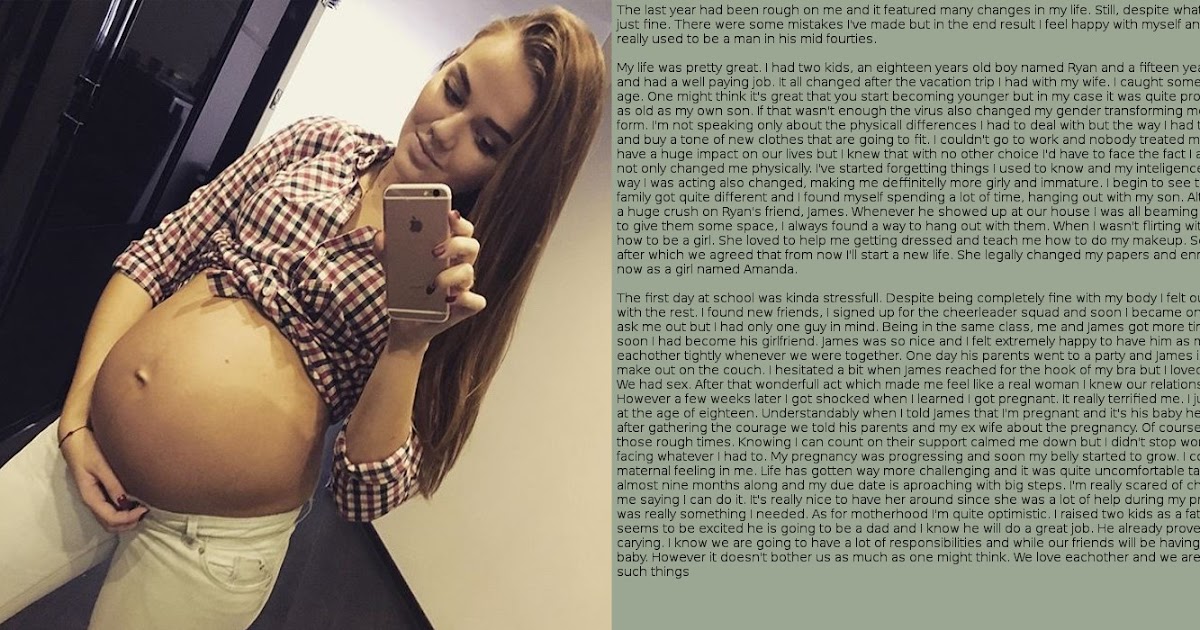Are babies eyes open in the womb
What's It Like in the Womb?
Jesse Rapp wasn't born until May, but he and his parents were playing together long before that.
At night, Morgan often rested his head on Richele's pregnant belly, calling Jesse by name and feeling him wriggle in response. Sometimes the couple would play games. They'd gently poke first one side of Richele's abdomen, then the other, and watch as Jesse followed their touch by poking the same side back. They even teased him by poking the same side twice and laughed as he poked the "wrong" side back.
All their prenatal shenanigans paid off. In the recovery room, it seemed abundantly clear Jesse recognized his parents right away, turning his head in their direction when either one spoke. When he cried, he'd calm down instantly at the sound of their voices.
"It was so exciting because there was this trust and communication and a certain sense of bonding between us right away," says Morgan Rapp. "And for him, I think, it was reassuring because he had a sense already of where he was. "
Thanks to ultrasound and other high-tech tools allowing a peek inside the womb, scientists have discovered a virtual sensory playground in which your baby is living. The fetus responds to your voice and other sounds in the room, reacts to light and dark shadows as you move from place to place, tumbles as you switch positions, even tastes sweet or spicy foods you've just eaten.
Experts believe these experiences cause physiological changes in your fetus' sensory systems that are necessary for normal brain growth. But the question is: Is more better?
There's already an array of tapes and gadgets on the market that help parents talk, sing or pipe classical music into the womb via little speakers on the uterus. One researcher has even developed a "curriculum" designed to speak to the fetus and supposedly boost intelligence, coordination and well-being.
Don't feel pressured to pull out the credit card just yet.
Most researchers studying fetal development say Mother Nature and the stimuli your baby naturally receives in the womb from your everyday conversations and activities are good enough to prepare your baby for the outside world. Study of how the human brain develops still is in its infancy, but there's no convincing scientific evidence that deliberate fetal acoustic stimulation, as it's called, influences intelligence, creativity or later development.
Study of how the human brain develops still is in its infancy, but there's no convincing scientific evidence that deliberate fetal acoustic stimulation, as it's called, influences intelligence, creativity or later development.
"Nature does a pretty good job of programming or presenting the necessary kinds of stimulation that a fetus should get at the appropriate times during development," says William Fifer, a developmental psychobiologist at Columbia University. In fact, experts worry that sticking speakers or headphones up to your abdomen could actually disrupt your baby's sleep patterns or the natural order of growth.
If there's any benefit to spending time talking to your baby or letting your favorite music filter naturally through the uterine wall, it's as much for the parents as for the baby, they say. "I think most of the purpose of talking to your baby is to give people a chance to sort of attach, to get used to the fact that this new creature is going to be a big part of your life," says Fifer.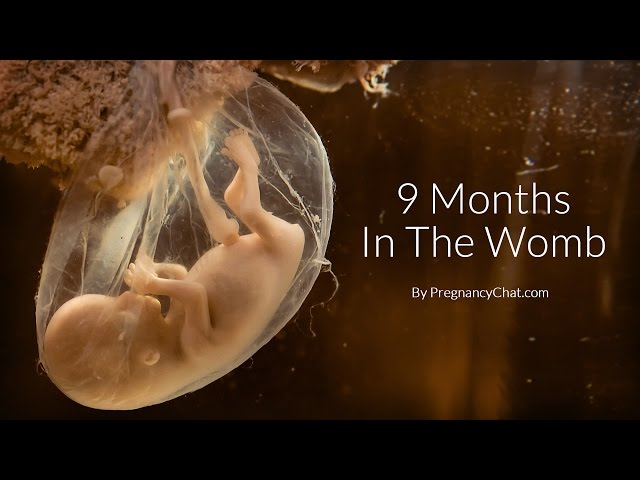
Look Who's Listening
Your baby's hearing is intact by the third trimester, when sonograms show that a fetus will actually turn its head to respond to a sound. But studies have shown that your unborn child can hear sounds as early as 20 weeks and will be startled by loud noises at about 25 weeks. Very loud sounds can cause changes in your baby's heart rate and movements, and sometimes even cause them to empty their bladders.
Instead of the womb being the quiet place scientists once assumed, it is actually awash in sounds, particularly the whooshing of your blood and digestive system, the thumping of your heart and your voice, which sounds louder than it would transmitted through the air since it reverberates through the bones and fluids in your body.
Noises from outside your body are more muffled but they also make it through surprisingly clearly, says Robert Abrams, a fetal physiologist in the department of obstetrics and gynecology at University of Florida. Low frequency sounds, such as those above middle C, tend to be more audible than higher frequency ones. Men's voices, for instance, come through clearer than women's, and music also is easily recognizable.
Men's voices, for instance, come through clearer than women's, and music also is easily recognizable.
It appears the fetus can even hear specific speech patterns and intonations, although probably not recognize words themselves, Fifer says. Some studies have shown that babies after birth will recognize -- and be comforted by -- a story read repeatedly to them while in the womb or even by particular songs, like the theme from a television show watched regularly during pregnancy.
Much has been made of the benefits of playing classical music to children because it supposedly enhances spatial development. Why not, some speculate, do the same for the unborn child?
Indeed, fetuses breathe in time to music they enjoy, according to Dr. Rene Van de Carr, a California OB-Gyn who teaches parents how to stimulate unborn babies through music and other exercises at the Prenatal University in Hayward, Calif. He is also author of "While You're Expecting ... Your Own Prenatal Classroom. "
"
Dr. Van de Carr claims such aural stimulation not only increases neural connections in the brain and enhances brain growth, but encourages parents to be more attentive and interactive and sets expectations for achievement later on. He suggests expectant parents stimulate their babies for about five to 10 minutes twice a day. The key is not to get too repetitive with any one activity or the baby will tune it out, he says.
Yet much of the hullabaloo over the so-called Mozart effect has been exaggerated, says Janet DiPietro, a developmental psychologist who studies fetal development at Johns Hopkins University. The research has been done primarily on adults, and the only children that have been studied were 3- and 4-year-olds, who were actually playing the music on keyboards rather than simply listening to it.
And many experts say the jury's still out on whether it's in-utero interventions -- or simply genetics and a nurturing environment after birth -- that make your baby smarter, more musically inclined or better adjusted.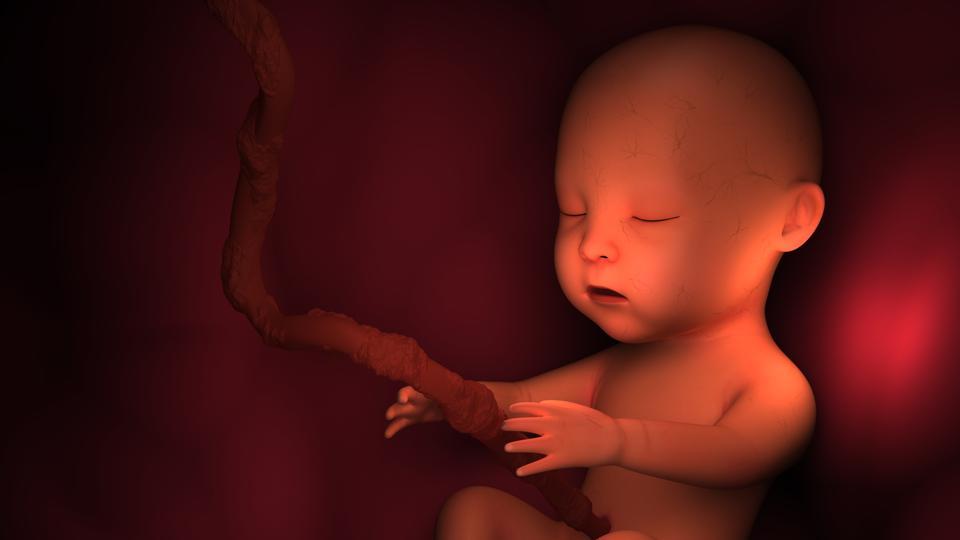
"I tell people that if they like classical music then play it, but if they don't, then don't," says DiPietro. "It think it's irrelevant to the fetus, unless the mom likes to come home, put her feet up and turn on music that's relaxing to her. That's the way the baby gets the effect."
Get Those Brussels Sprouts Outta Here
Your baby's sense of touch begins to develop early in pregnancy as it explores the uterine wall, umbilical cord and even its own body parts, spending the most time touching its face. As early as the ninth week, your baby will respond when its lips or areas around the mouth are touched. By the eighth month, it moves towards the source with mouth open, the beginnings of the rooting reflex, which the baby needs to begin nursing and sucking on a bottle after birth.
Smell and taste are often hard to separate, so they're described as chemosensations. Just try sucking on a Jelly Belly while plugging up your nose, suggests Julie Mennella, a psychobiologist at the Monell Chemical Senses Center in Philadelphia.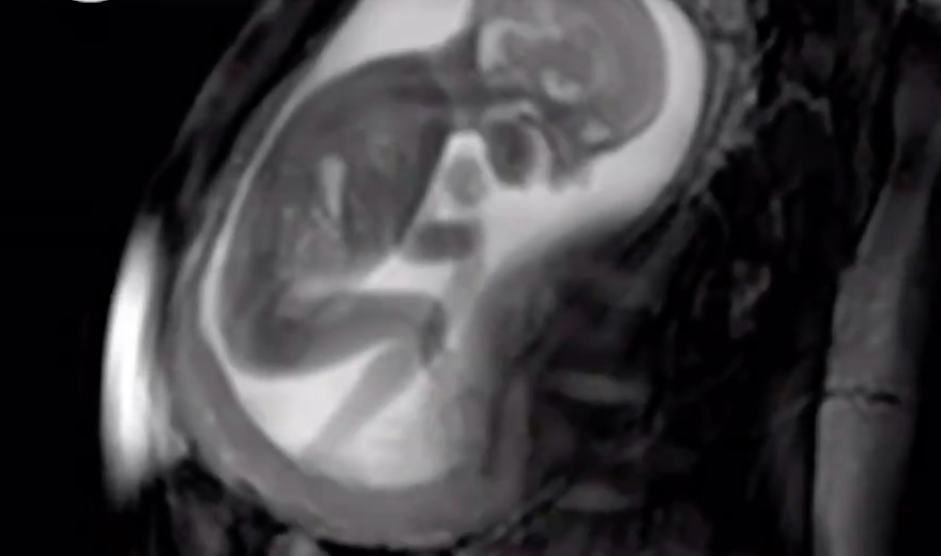 From about the fourth month of pregnancy, the fetus is gulping and inhaling a variety of foods you've eaten through the amniotic fluid, and by the third trimester, your baby can tell whether it's bitter, sweet, sour or even garlicky, and will show preferences for certain tastes.
From about the fourth month of pregnancy, the fetus is gulping and inhaling a variety of foods you've eaten through the amniotic fluid, and by the third trimester, your baby can tell whether it's bitter, sweet, sour or even garlicky, and will show preferences for certain tastes.
Researchers say that learning about tastes and smells in the womb are actually preparing your baby for life after birth. Not only are newborns comforted by their mother's smell, which is likely introduced first through the amniotic fluid, but they're already familiar in the same way with the taste of mother's breast milk. Some animal studies even suggest that the more varied a pregnant mom's diet, the more open the offspring will be to different foods.
Fetuses also begin to develop a sense of balance from their movements in utero. Not only are they gently tumbling and floating in the amniotic fluid, but your own movements will cause the baby's position to change. Those movements stimulate a structure in the ear that helps the brain process information about motion and body position. By 25 weeks the fetus displays a righting reflex, which may be responsible for most babies turning head down before delivery.
By 25 weeks the fetus displays a righting reflex, which may be responsible for most babies turning head down before delivery.
This motion also stimulates emotional changes in your baby. You may notice that your baby is more still when you're very active, and then at night becomes active when you're still. Once your baby is born, you'll probably find that when they're fussy, you can quiet them by rocking them, reminiscent of the movements they experienced in the womb.
Your baby's sight is the last sense to be developed and won't be fine-tuned until after birth, but growth inside the womb begins early. The eye pockets form by about five weeks of pregnancy, and by the fourth month, the eyes are almost completely formed. Your baby's eyelids won't open until the seventh month, when the fetus will begin opening and closing them and rolling the eyes around, as if testing them out. A bright light can penetrate the uterus and may make the fetus more active.
Finding the Edge
When Kurt and Cathy Meyer of Fishers, Ind. , were expecting their daughter, who was born almost a year ago, they did everything they could to give Marie a running start. They read to her. They talked to her. They even researched all the different prenatal stimulation products on the market.
, were expecting their daughter, who was born almost a year ago, they did everything they could to give Marie a running start. They read to her. They talked to her. They even researched all the different prenatal stimulation products on the market.
They settled on BabyPlus, a "cardiac curriculum" developed by Seattle developmental psychologist Brent Logan. The 16-tape series of audio tapes deliver sonic patterns to stimulate the fetus' nervous system and exercise its developing brain.
"We were looking for every possible competitive edge for our child," says Kurt Meyer. "From a parent's perspective, if you deprive your child of any opportunity to learn, you haven't done your job."
It's hard to prove the effect BabyPlus had on Marie. But the couple is convinced the prenatal stimulation allowed her to sleep better after birth and reach developmental milestones, like saying words and understanding when others spoke to her, faster.
"We have a lady who watches her three days a week, a mother of two who watches three other children about the same age as Marie, and almost a week doesn't go by when she hasn't told us that Marie is doing something, where the other kids aren't quite there yet," says Meyer, who owns a commercial real estate company.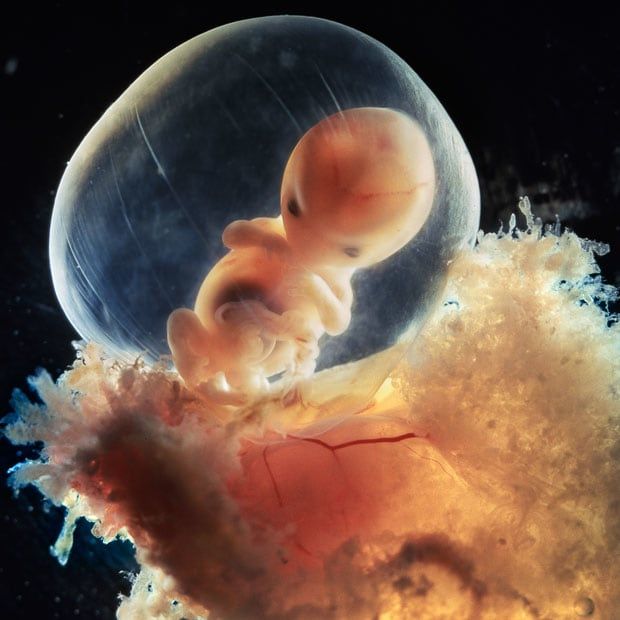
The BabyPlus system consists of a belt with two tiny speakers fastened onto the mother's abdomen for two one-hour periods per day over 16 weeks in the second trimester. The series of tapes features an imitation of the mother's heartbeat, only the rhythms get progressively more complicated and faster with each tape. The cost of the system is $180.
"Since we knew the mother's blood pulse is serving as the fetus' most elementary instruction, why not create a more intelligent heart, an orchestrated heart, that would be able to provide successive progressions of schooling?" Logan says.
He says stimulating additional brain connections early is particularly important since a significant portion of brain cells naturally die off in the later stage of pregnancy. "Like exercising a muscle, by getting the fetal brain to oscillate faster at more mature rhythms, you're able to lock into place a more mature brain," he says.
But Fifer and other experts say there's no scientific data supporting these claims and worry that fiddling with this timing by amplifying sound with speakers or headphones into the womb could be disruptive to your baby's sleep patterns, and even harmful. For most of the pregnancy, your baby sleeps about 95 percent of the time, even as you feel it moving or hiccupping.
For most of the pregnancy, your baby sleeps about 95 percent of the time, even as you feel it moving or hiccupping.
He also worries the stimuli could confound the timing of brain development established through years of evolution. "The message is that it's not a good thing to lose these extra brain cells, when in fact that's how nature programs things ... to make room for the connections and wiring that turn a brain into a mind," says Fifer.
"We actually know very little about the developing brain and the environment it needs to develop well," agrees DiPietro. "No one would argue that you wouldn't stick a speaker next to a newborn baby when they're sound asleep and blast music in its ear."
The same goes for the fetus. "We have no idea what it's doing to the developing brain, and to assume it's a good thing is really foolish. It's much more likely to be interfering with normative brain development," DiPietro says. There's even some research showing that fetus will tune out repetitive external stimuli.
DiPietro puts the concept of prenatal stimulation right up there with flash cards and early reading programs -- that it puts even more pressure on parents to overstimulate their kids.
"When you start trying to create kind of a super baby before they're even born, you set up a bad dynamic between parents and children," she says. "You're expecting a baby to be a certain way. Why not wait until the baby's born, see who they are, then try to support their particular needs and abilities."
8 Amazing Things A Baby Does In The Womb
Pregnancy is, without doubt, amazing.
Even on the hardest days of your pregnancy, as you struggle against nausea, leg cramp and getting yourself up off the sofa, it’s pretty hard to ignore the wonder of growing a life inside you.
Each week, as you flick through the pages of a book, or swipe to the next section of your app, it’s exciting to find out how your baby is growing and developing.
So for those of you who are currently struggling with [insert your annoying pregnancy symptom here], here are some facts to help keep you smiling.
Check out these amazing things your baby could be doing right now inside your uterus:
#1: Tasting Your Dinner
When you eat certain foods, the flavours can be detected in your amniotic fluid.
Garlic, anise, ginger and sweet flavours are all known to alter the flavour of amniotic fluid. Researchers believe this is nature’s way of preparing the baby for the flavours of the food he is likely to eat when he enters the world.
From as early as week 15, your baby will begin to show a preference for sweet flavours by swallowing more amniotic fluid when it is sweet, and less when it is bitter.
#2: Opening Her Eyes
There might not be much to see in there, but your baby will open his eyes sometime around week 28.
He won’t be able to see much, but will start reacting to light during the second trimester. Researchers have observed developing babies moving away from light.
Bright light may filter through your abdomen and reach your baby, this won’t cause him any harm though he may try to turn away from it from as early as 15 weeks.
#3: Having A Wee
Having a wee might not sound like something amazing, especially when you’re 30 weeks pregnant and wee all the time, but give this one a chance.
You better get used to baby wee pretty quickly, because once your baby arrives, it will be on your sofa, in your face (yes, those of you expecting little boys) and, perhaps, even in your cup of tea (some little chaps have really good aim).
In order to perfect the skills necessary for these hilarious (and oh-so-gross) pees, your babe better start practicing now.
By the end of the first trimester, your baby will start producing urine. Amniotic fluid is swallowed, digested, filtered by the kidneys, and then urinated back into the uterus, and the process is repeated.
By watching this process during an ultrasound scan, sonographers can identify potential problems with the baby’s swallowing reflex.
#4: Breathing
The umbilical cord provides your baby with all of the oxygen he needs during pregnancy, but your baby is still busy practicing breathing for when he’s born.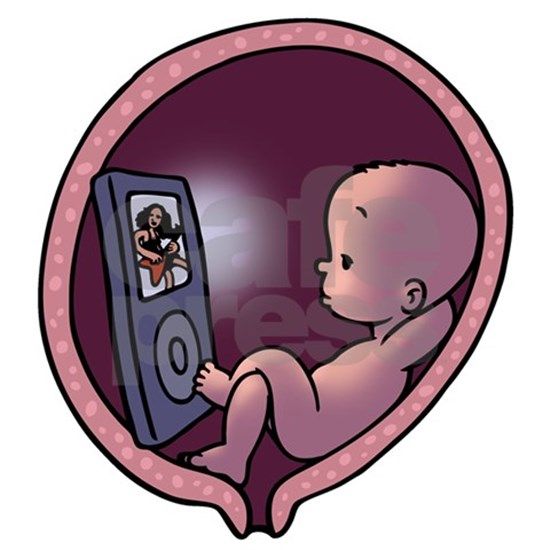
At just nine weeks, he starts going through the motions, practicing breathing and perfecting this necessary life skill. Your baby’s first breath is triggered by the sudden change in both temperature and environment as he enters the world.
That’s why, if you choose to have a water birth, the pool water must be at body temperature when the baby is born. This delays the temperature change, and thus the first breath, until the baby is lifted out of the pool.
With the umbilical cord still attached, your baby will continue to get oxygen.
#5: Smiling
For the first few weeks of motherhood, you’ll find yourself willing your baby to smile.
After all, you’re busy changing nappies, feeding and generally not sleeping, surely they could just offer you a flash of those gums as reassurance that you’re doing a good job?
Fear not, because your developing baby could be practicing his winning smile this very moment from the comfort of your uterus. Using 4D scans, sonographers have discovered that babies smile in the womb from around week 26.
#6: Hiccuping
Hiccups can start as early as the first trimester, though you might not be able to feel them until much later in the pregnancy.
Some women may never feel their baby hiccup, but for others it can be a daily occurrence in the second half of the pregnancy.
#7: Crying
This one might break your heart a little, but there’s a chance your little one could be crying silently in your womb this very minute.
Using ultrasound technology, scientists were able to identify crying behaviours in developing babies.
Researchers have even noted that babies exhibit a trembling bottom lip when crying in utero.
Crying is an important communication tool for new babies, and it’s one they need to perfect before they enter the world.
#8: Bonding
Your baby doesn’t have the internet to help her seek out articles for bonding during pregnancy, but don’t worry, she doesn’t need them.
Your baby is already busy bonding with you as you go about your daily life. During the last 10 weeks of pregnancy, babies have been found to actively listen to their mothers’ voices.
During the last 10 weeks of pregnancy, babies have been found to actively listen to their mothers’ voices.
He might not yet understand what you’re saying, but he’s paying close attention to how you say it.
Thanks to all of this time spent listening to you moan about your indigestion, your baby will be able to recognise your voice as soon as he is born.
Open their eyes, cry and hear. Ten interesting facts about babies and pregnancy
Open your eyes, cry and hear. Ten Interesting Facts About Babies and Pregnancy
Pregnancy and childbirth are wonderful times, but new parents rarely go without panic. There are some interesting facts about newborns that you might not even know about.
How long does a pregnancy really last?
A normal pregnancy can last from 35 to 40 weeks, so 9 months is a very rough estimate. In fact, only 4% of pregnant women achieve it.
In addition, the first day of pregnancy is considered to be the first day after the end of menstruation, and not the day of fertilization.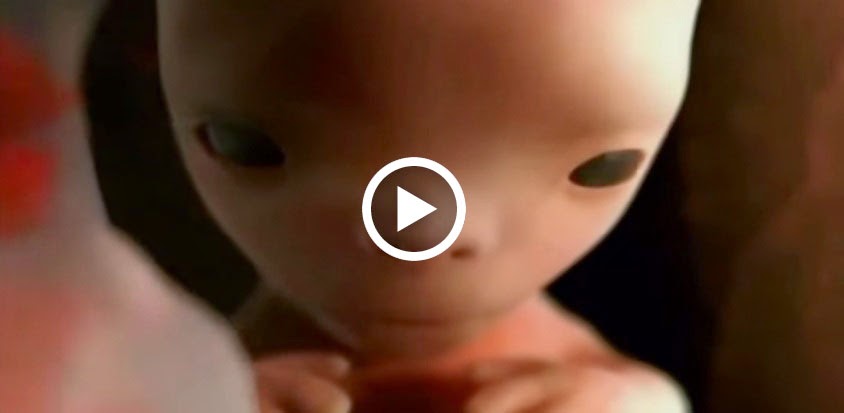 Ovulation occurs approximately 2 weeks after the cycle, and fertilization itself occurs within 24 hours after that. So, if you are 8 months pregnant, then your baby is about 15 days younger.
Ovulation occurs approximately 2 weeks after the cycle, and fertilization itself occurs within 24 hours after that. So, if you are 8 months pregnant, then your baby is about 15 days younger.
When does a baby's heart start beating?
The baby's heart in the womb begins to pump blood at 6 weeks, and at the 8th week the regular heartbeat is about 160 beats per minute. It can already be heard with an ultrasound device.
Can newborns hear sounds?
Different sounds are perfectly audible in the womb. Most of the ear structures needed for hearing are formed by 16 weeks. From now on, the baby can hear how mom is talking, how her heart beats, her stomach growls and many other interesting things.
Does too loud noise harm the baby?
Sounds can soothe a baby, but loud noises can cause problems. Hearing damage can be caused, for example, by the sounds of jet engines, gunfire, and loud music.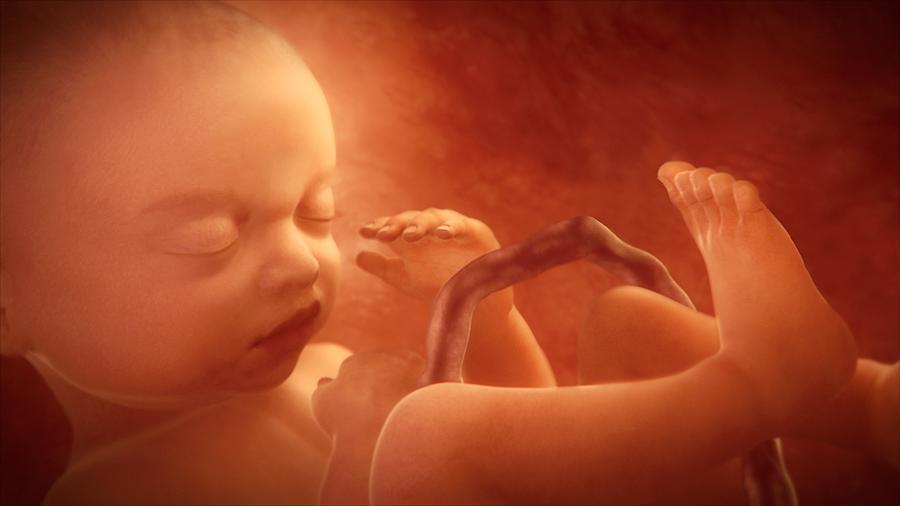 Affects the fetus and the duration of the noise.
Affects the fetus and the duration of the noise.
Do babies see before birth?
It turns out that babies can open their eyes while still in the womb and see the light from outside. The eyes open for the first time between the 26th and 28th weeks of pregnancy. Babies see quite blurry, but they can react differently to light sources - sunlight or a flashlight.
Do babies defecate in the womb?
Babies begin to pee inside the sheath around them around 8 weeks, although active urine production starts with kidney development at 13-16 weeks. What's more, babies can swallow a mixture of urine and amniotic fluid. By week 20, most of the amniotic fluid is the baby's urine.
Babies defecate for the first time, usually after birth. The substance in the intestines of babies is called meconium and consists of substances digested by the body during their stay in the womb: intestinal epithelial cells, mucus, amniotic fluid, bile, water.
Can children taste and smell?
Taste molecules from the food a young mother eats enter the bloodstream and then through the placenta into the amniotic fluid. Taste buds in babies begin to develop around 11 weeks and become more developed by 28-29 weeks. This means that babies can swallow or inhale the amniotic fluid and feel the taste or smell.
The amount of blood in women during pregnancy increases by 30-50%
Due to the production of the hormone relaxin, which softens and dilates the blood vessels so that the baby receives enough nutrients, the amount of blood in women increases. This means that the legs begin to swell and hurt, and varicose veins may occur.
Does the mother's emotional state affect the child?
The psychological trauma of a young mother can also harm the baby. For example, children who are born to parents with post-traumatic stress disorder (PTSD) are more likely to develop it later on. In addition, a woman under stress may have worse appetite and sleep, and therefore the baby may receive less of the nutrients he needs.
In addition, a woman under stress may have worse appetite and sleep, and therefore the baby may receive less of the nutrients he needs.
Do babies cry in the womb?
Yes! The researchers accidentally made this discovery when they studied mothers who had not given up smoking and drug use during pregnancy. On the ultrasound video, they saw the babies opening their mouths and inhaling, while their tiny chins trembled and moved.
Learn more
Babies in the womb yawn, smile and cry
Komsomolskaya Pravda
SocietyScience: Curious Club
Vladimir LAGOVSKY
July 1, 2004 14:46
Doctors learned how to photograph unborn babies with the help of ultrasound
Bored... confused... offended... looked around. .. scratched.
The fetus doesn't just ripen
The images shown by London-based professor of medicine Stuart Campbell of the Center for Reproduction and Advanced Technology shocked the world. For the first time, people saw what, in fact, the developing child does in the mother’s belly, what the last six months of pregnancy are doing there. Many, of course, suspected that the fetus is not just “ripening”, but carries out certain body movements - it pushes, as expectant mothers say tenderly. But it turns out that he begins to push with his legs, and move his arms, and generally somersault long before the woman feels it.
For the first time, people saw what, in fact, the developing child does in the mother’s belly, what the last six months of pregnancy are doing there. Many, of course, suspected that the fetus is not just “ripening”, but carries out certain body movements - it pushes, as expectant mothers say tenderly. But it turns out that he begins to push with his legs, and move his arms, and generally somersault long before the woman feels it.
- We filmed the first fully meaningful and active movements of the fetus at the age of 8-12 weeks, says Professor Campbell. - He thus reacted to external stimuli, for example, to a change in the position of a pregnant woman, to a loud sound.
It turns out that a 12-week-old fetus is already a human being. And, probably, the ardent opponents of abortions are right - namely, at this time most women do them - that getting rid of such a fetus is a kind of murder.
Ultrasonic camera
The unique imaging device is a modernized version of the equipment that doctors have long used for ultrasound examination of pregnant women - the same sensors are driven over the abdomen, and images of the fetus appear on the computer screen. Campbell managed to make them clearer - so much so that even non-specialists can now see all the details. Moreover, the device has become very fast. And this made it possible to obtain digital images in real time. In other words, consistently photograph what the fetus is doing at a particular moment.
Campbell managed to make them clearer - so much so that even non-specialists can now see all the details. Moreover, the device has become very fast. And this made it possible to obtain digital images in real time. In other words, consistently photograph what the fetus is doing at a particular moment.
As a memento of life before birth
Spying on a sacrament is not just entertaining. It also clears up some misconceptions. For example, doctors believed that the fetus opens its eyes at the 26th week. It turned out that on the 18th. And he doesn’t just open it - he blinks, moves his eyes from side to side, as if looking around, they say, where am I?
And from the 26th week, that is, at the 6th month of pregnancy, the baby already demonstrates a full range of human reactions. He hiccups, frowns, scratches, grabs something, cries. It sucks a finger, usually a large one, but it can suck other fingers, putting them in its mouth in turn. Doctors believe that this is how the fetus “trains” to suckle the breast. And when the baby doesn’t like something, he bites and twists his mouth, expressing discontent with facial expressions.
And when the baby doesn’t like something, he bites and twists his mouth, expressing discontent with facial expressions.
Theoretically, the fetus could scream, but there is no air in the womb for this. But the fetus “trains” here too - it opens its mouth. It looks like he is yawning. But in fact, as doctors now believe, the baby is preparing himself for the first breath, which will have to be taken immediately upon arrival in our world.
The most amazing thing is that a six-month-old baby smiles at something in the womb. And before everyone was sure that children begin to smile a few weeks after birth.
Professor Campbell is now going to release a booklet - an album of photographs called "Watch Me Grow" for everyone to watch life in the womb. The scientist is even sure that many expectant mothers will also want to have photographs of their own child, in which he would be captured at a very early age. In England, this service costs about $450.
He feels everything
Apparently, a child who is still in the womb can indeed be influenced, as some mothers believe.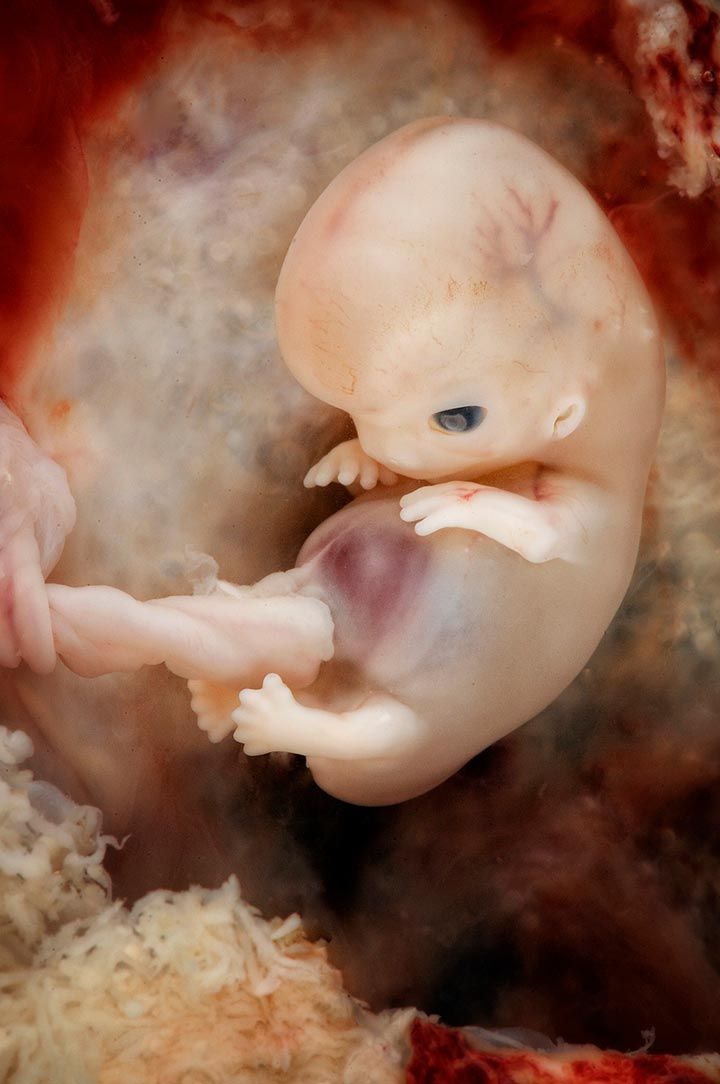 They read books to him, go to concerts of good music, look at beautiful pictures in the hope that the child will hear all this, see it and then become smart. Probably, it is worth recognizing that such “preliminary” education is correct. The baby feels and reacts. This is confirmed by photographs. As well as confirm that the child cannot be offended in the womb with rude words, poison him with alcohol and tobacco. He is crying.
They read books to him, go to concerts of good music, look at beautiful pictures in the hope that the child will hear all this, see it and then become smart. Probably, it is worth recognizing that such “preliminary” education is correct. The baby feels and reacts. This is confirmed by photographs. As well as confirm that the child cannot be offended in the womb with rude words, poison him with alcohol and tobacco. He is crying.
Age category of the site 18+
Online publication (website) registered by Roskomnadzor, certificate El No. FS77-80505 dated March 15, 2021
I.O. EDITOR-IN-CHIEF - NOSOVA OLESIA VYACHESLAVOVNA.
I.O. chief editor of the site - Viktor Fedorovich Kansky
Messages and comments from site readers are posted without preliminary editing. The editors reserve the right to remove them from the site or edit them if the specified messages and comments are an abuse of freedom mass media or violation of other requirements of the law.


